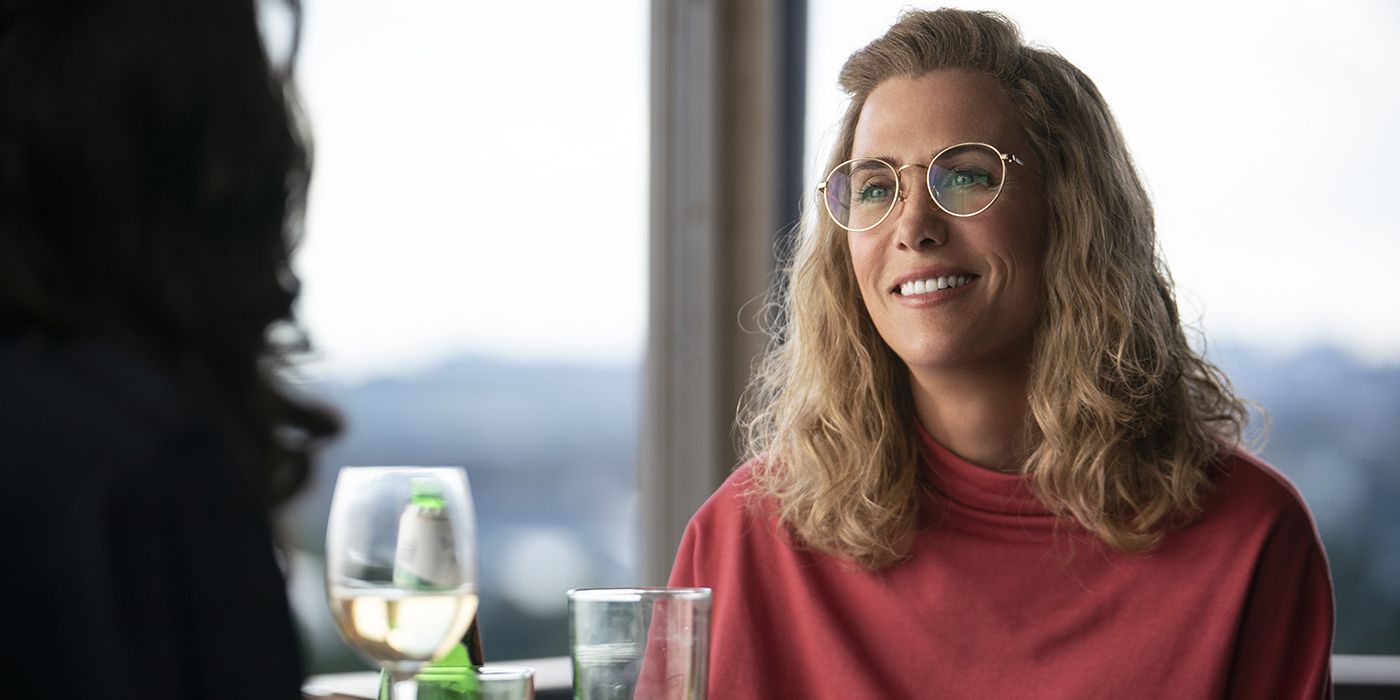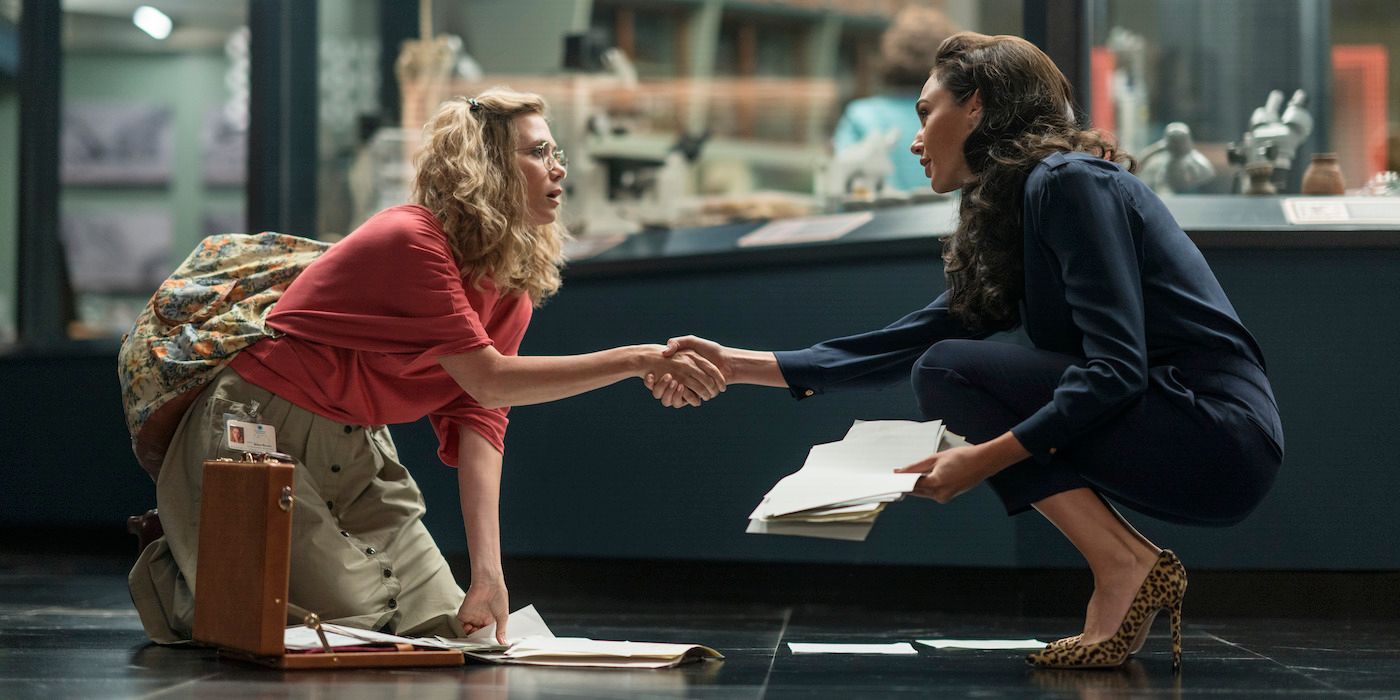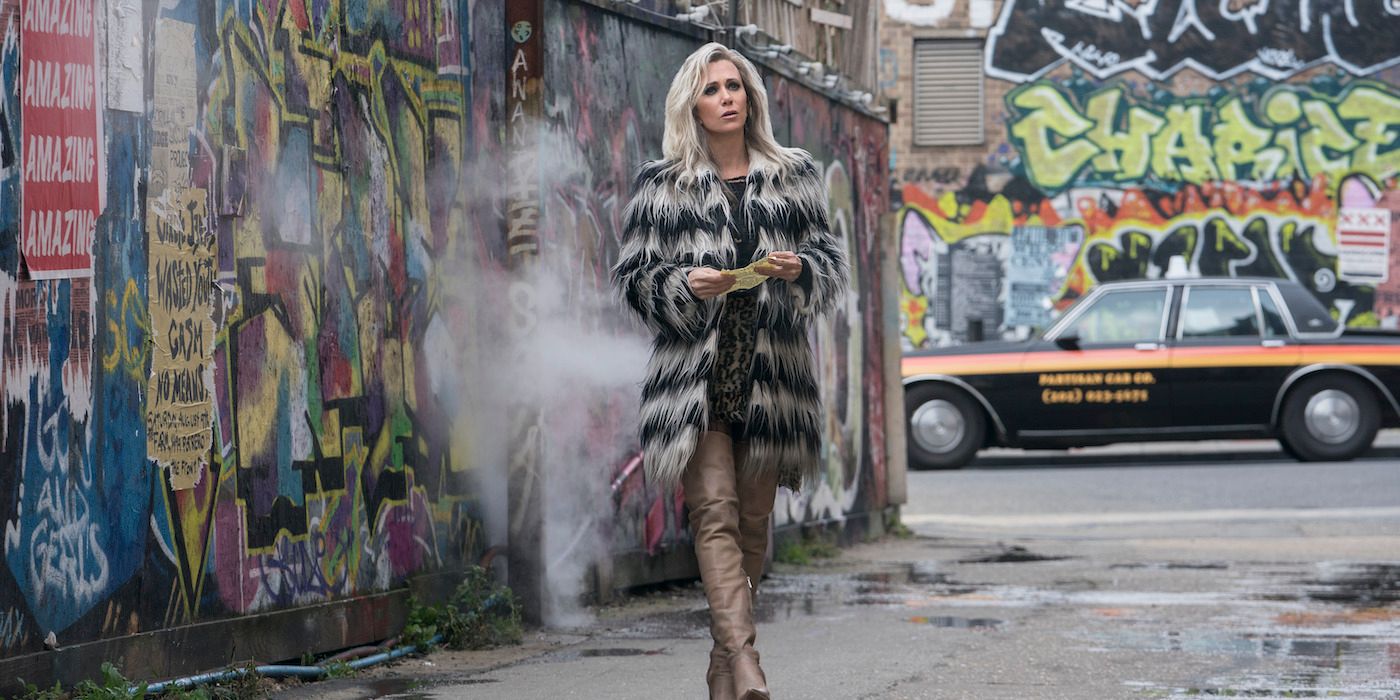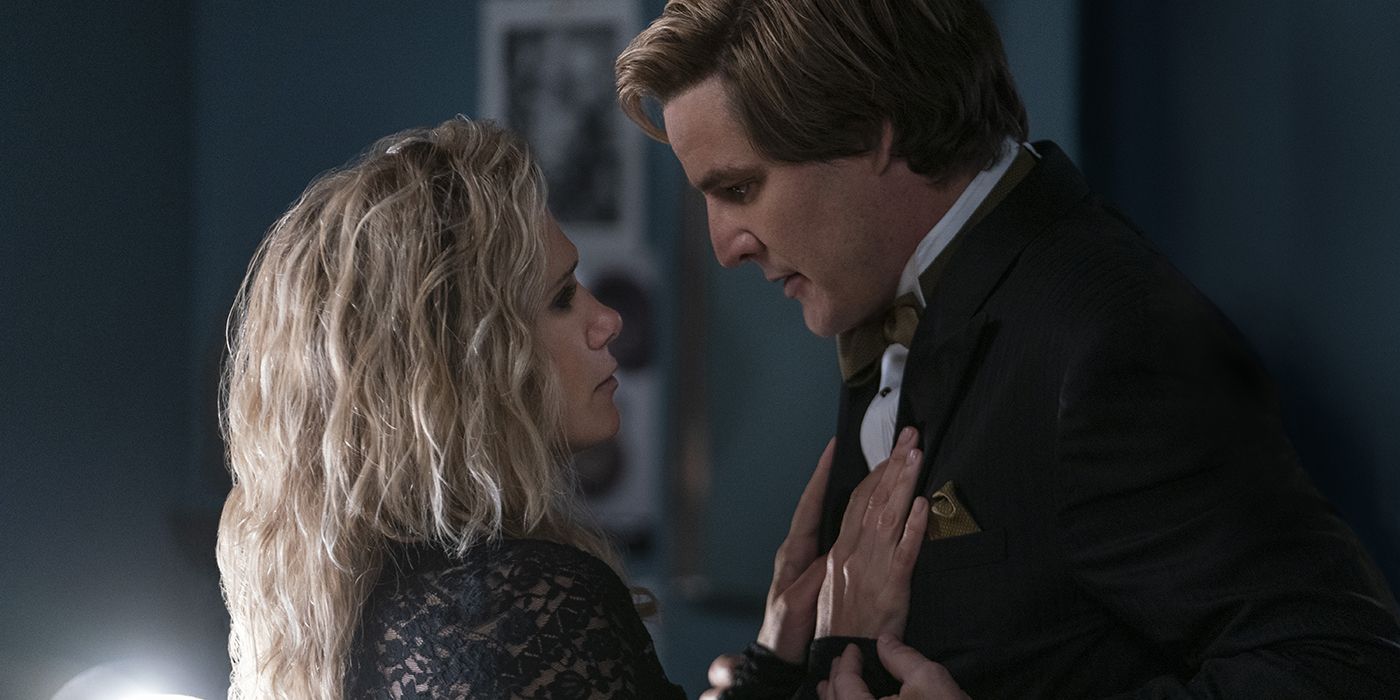[Editor's note: The following contains spoilers for Wonder Woman 1984.]
Wonder Woman 1984 has a villain problem. Specifically, it has a Barbara Minerva problem. The way in which the DCEU sequel to 2017's Wonder Woman chooses to handle one of its two Big Bads (the other being Pedro Pascal's flashy con man Max Lord) is one of a great many issues that pop up in Wonder Woman 1984. In the Wonder Woman comics, Barbara Minerva is the third of four incarnations of the villain known as Cheetah. First introduced in August 1987's Wonder Woman Vol. 2, #7, Barbara is one of two incarnations of Cheetah who physically transform into the form of a human-jungle cat hybrid thanks to her superhuman powers gifted to her from a mythical god that puts her on equal footing with Wonder Woman. Lithe, ferocious, cunning, and powerful, Cheetah is a formidable antagonist for Wonder Woman. Over the years, the Cheetah vs. Wonder Woman showdowns in the comics have become legendary. Placing Cheetah opposite Wonder Woman in a DCEU movie should have been a major moment for this franchise. Unfortunately, the version of Barbara we get in Wonder Woman 1984 bears little resemblance to her comic book forebear and is instead a watered-down villain who barely stands as her own person.
Broadly speaking, the movie version of Barbara is similar to the comic book version of the character insofar as they both go from neurotic, intelligent, ambitious women to superpowered beings with cheetah-like capabilities including superhuman strength and speed. But, over the course of Wonder Woman 1984's runtime, it's clear this movie is less interested in making Barbara a well-developed character with a logic-based arc and more interested in making her play a supporting sidekick role to Max Lord. Wonder Woman 1984's depiction and, subtextually speaking, dismissal of Barbara before, during, and after her transformation into Cheetah is one of the more disheartening aspects of this DCEU sequel. Even worse, it also feels out of step with both logic and the ideology of Wonder Woman.
I knew there was trouble when Barbara, a new hire at the Smithsonian Institute, is introduced through an exchange with her new co-worker, our hero Diana Prince (Gal Gadot). The establishing conversation culminates in Barbara complimenting Diana on her leopard print high heels — a not-so-subtle harbinger of things to come — before asking her to hang out after work. After months of trailers previewing Barbara Minerva's transformation from bookish geologist to a literal cheetah, the casual exchange about shoes between the movie's only female leads was enough to give one pause; surely there is more for these two accomplished women to bond over?
That introduction scene is one of a few pre-Cheetah scenes for Barbara and in it, they establish her character in relation to other key characters in the story rather than showing us who Barbara is as her own person. Even though the character of Barbara Minerva has a rich, complicated comic book backstory (get a sense of it via Fandom's DC Database) available for the Wonder Woman 1984 screenwriting team — Patty Jenkins, who also directs; Geoff Johns (Aquaman), and David Callaham (Shang-Chi and the Legend of the Ten Rings) — to pull from, they eschew it in favor of little to no personalization.
Before Barbara makes her wish on the Dreamstone, she is a standard-issue single gal. Who Barbara is as a person only becomes clearer when we see her in relation to Diana (as a sympathetic friend and long-distance research assistant) and Max (as a smitten love interest who can barely maintain her cool around him). Outside of these relationships, there is no baseline for Barbara; power-walking to work and girl talk do not a complex character make. Worse still, Max gets the benefit of a fully fleshed-out arc complete with a young son who acts as his tie to humanity and provides some emotional stakes. But Barbara, an equally new Wonder Woman character, is a tapestry of tired movie ideas about women who exist in service of others.
The reason for Barbara's Dreamstone transformation into Cheetah is also pretty egregious considering it has no basis in the comics. After a night out with Diana, where the women swap stories about their love lives and Ms. Prince later saves Barbara from a catcaller, Barbara returns to her Smithsonian office. There, she gets the bright idea to test drive the Dreamstone and wishes she was more like Diana, who she sees as "strong, sexy, cool, [and] special." (These reductive adjectives used to describe Diana make more sense coming out of Don Draper's mouth than Barbara's.) But because the patriarchy pits women against one another and instills the false idea that there is not enough room for everyone, Barbara believes she needs the advantages offered by the Dreamstone in order to be valuable or liked.
Even more confounding, Wonder Woman 1984 betrays Barbara's origin story, which sees her powers endowed by Urzkartaga, a deity she encounters while on an expedition in Africa. The DC comic books give Barbara the dignity of an origin story with no ties to Wonder Woman. This allows Barbara's antagonistic relationship with Wonder Woman to emerge more organically and for the two women to meet one another when Barbara is already a formidable force. In Wonder Woman 1984, Barbara gains her powers through the weakness of misguided idolatry — something that feels antithetical to the way female characters in this DCEU franchise have been portrayed.
Speaking of Barbara's failure to thrive by standing on her own two feet as a villain, perhaps we should talk about how deeply annoying it is to see her actively protect Max even though he's done nothing to deserve her loyalty? When Barbara learns at the same time as Diana that the Dreamstone must be destroyed, she chooses to turn on Diana. She's in too deep and has a taste for her superhuman powers — an expected development for a comic book movie villain. However, Wonder Woman 1984 then decides a good motivation for Barbara is to protect Max at all costs so that she can hold on to her powers. Barbara is essentially in service to Max for the rest of the movie, enabling him to continue with his evil plan. This is her one driving goal that, for a villain of her stature, is just embarrassing.
You have to wonder: At what point in Wonder Woman 1984's development did the final version of Barbara that we see come to be? What should be one of the most iconic Wonder Woman villains shown on the big screen now registers as a hackneyed corporate version of "badass lady villain" who cannot function unless she is existing opposite another character. Wonder Woman 1984 is completely uninterested in doing the work to actually craft a character that makes sense, has a strong backstory, has motivations that benefit her instead of other people (which would be best since she's a villain), and moves from scene to scene thinking and acting like a logic-driven character moving toward a specific goal. Why neuter Barbara to such a pathetic degree? Why undermine her so that a lesser villain — sorry, Max — can have more to do and feel?
At every turn, Wonder Woman 1984 failed Barbara. Here was a movie that provided us with a female villain — a rarity for the DCEU — and it failed to recognize how potentially profound and intriguing a premise that could be. What happens when your protagonist, a warrior for peace who loves humanity to her core, meets a female antagonist who is hellbent on achieving a singular, self-serving power no matter the cost? Your guess is as good as mine because Wonder Woman 1984 provides no answers. It threw away the chance to develop a character with so much potential. Rather than use Barbara as a tool to continue the Wonder Woman franchise's exploration of female superheroes and supervillains navigating their own desires as they grapple with the impact of their powers, Wonder Woman 1984 made her an accessory to a male villain. Even if Barbara does return for the forthcoming Wonder Woman 3, it will be a long road back to legitimacy.
Wonder Woman 1984 is now available to stream on HBO Max until January 24, 2021. For more check out our Wonder Woman 1984 cast and character guide and our review of the DCEU sequel.




